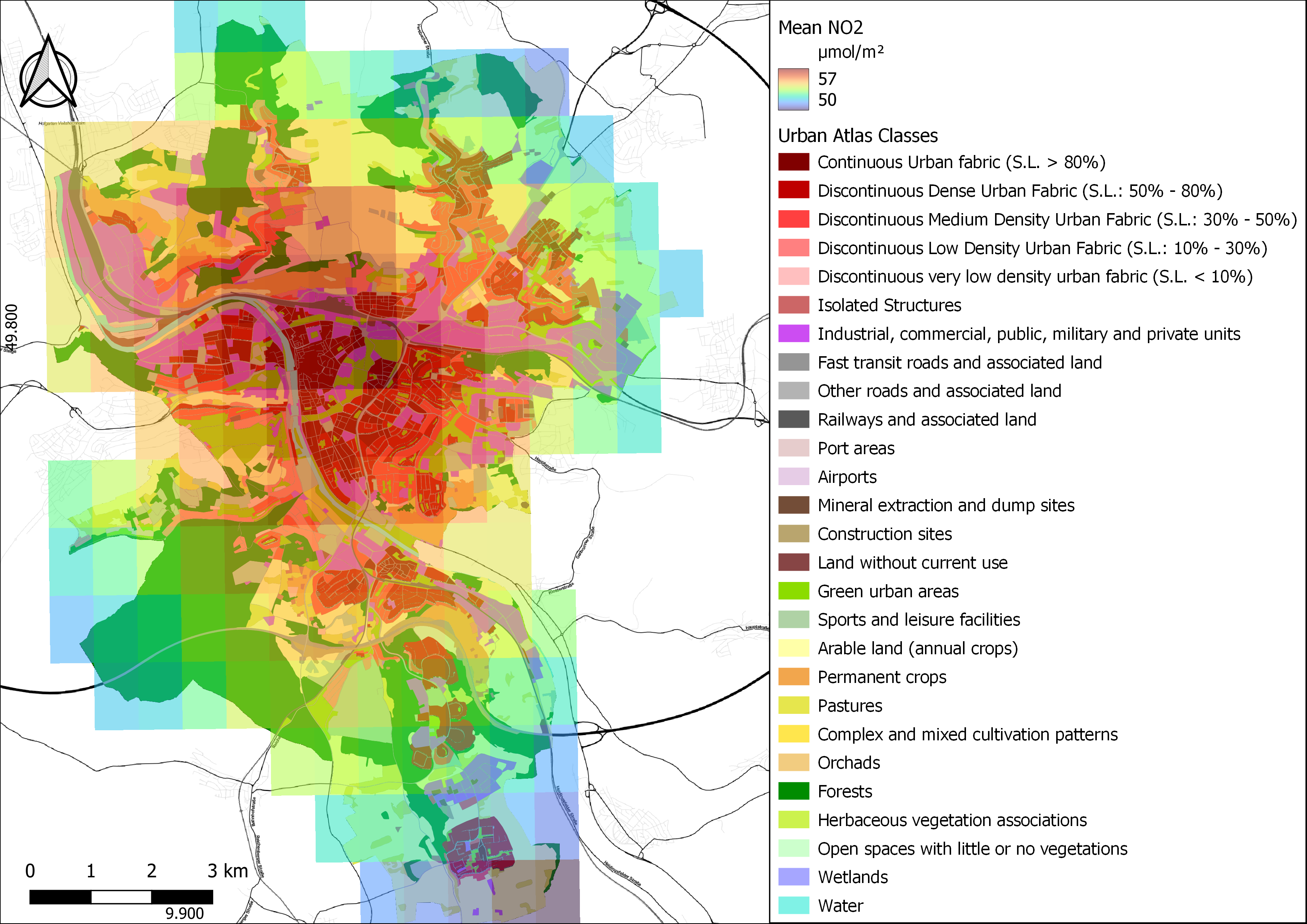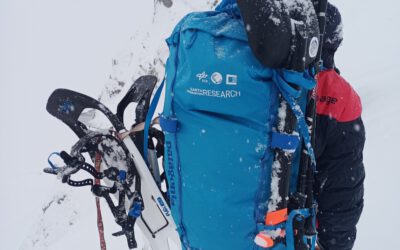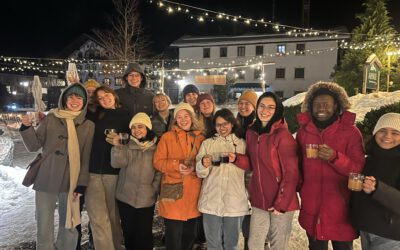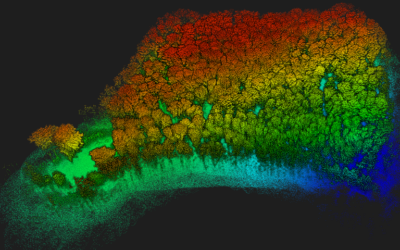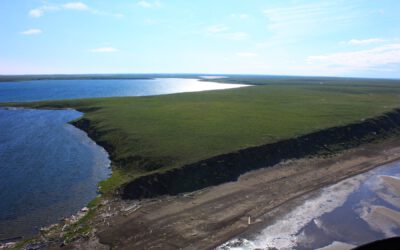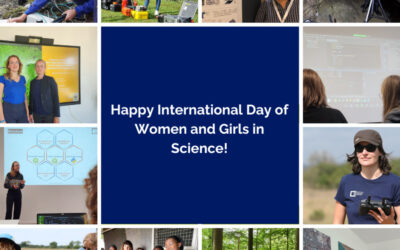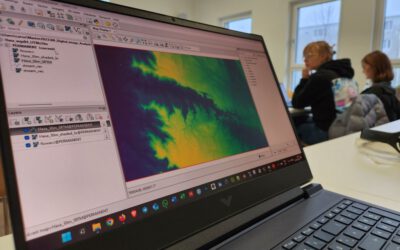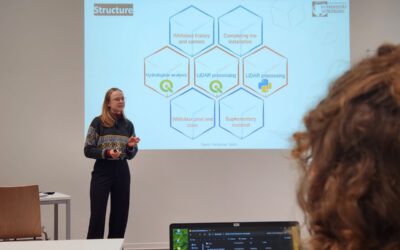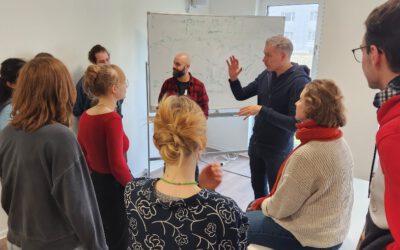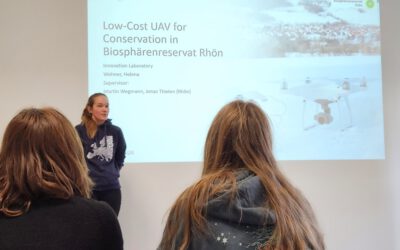On Friday, March 08, at 13:00, Andreas Bury will present his master thesis on “Assessing Air Pollution in Urban Environments: A Comprehensive Analysis Using Earth Observation and In Situ Measurements” in seminar room 3, John-Skilton-Str. 4a.
From the abstract:
This master’s thesis investigates the feasibility of using Earth Observation and low-cost environmental sensors in urban areas to complement existing government monitoring systems to provide a sharper picture of air quality, which is a growing concern for the health and well-being of urban dwellers. The work uses NO2 tropospheric column data from the Copernicus Sentinel-5P satellite, regulatory PM10 readings and self-constructed low-cost sensor systems measuring PM10, ambient temperature and relative humidity. The environmental monitors were developed with computer-aided design, 3D printed, and their performance evaluated. A network of static sensors and a mobile system were deployed to better cover the urban space in Wuerzburg, Germany, and detect spatio-temporal patterns. Each of the three layers has its own limitations with satellites facing temporal and spatial resolution issues and cloud cover interference, regulatory data providing site-specific measurements but only publishing hourly averages, and low-cost sensors being sensitive to elevated relative humidity and cold ambient temperatures. However, the work also shows that with appropriate data and procedures, calibration of low-cost sensors is possible and that all three levels can be intertwined to make a valuable contribution to research and understanding of urban space and its pollution levels.
1st Supervisor: Prof. Dr. Hannes Taubenböck
2nd Supervisor: Prof. Dr. Tobias Ullmann

